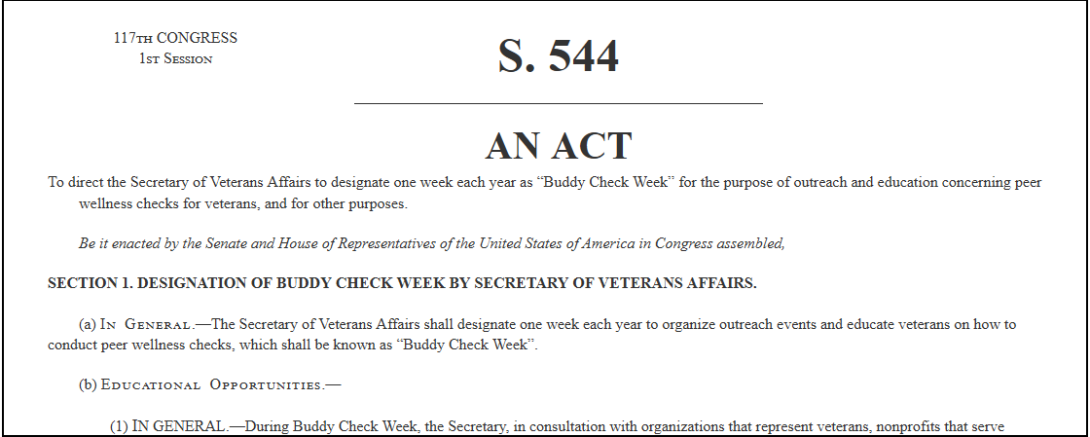In 1919, Congress chartered a veterans organization called The American Legion, whose purpose was to be of service to veterans, current servicemembers and communities. The Legion gradually developed through a group of World War I veterans and has since become an influential nonprofit group in America. Across the country there are 55 posts, one for each state along with the District of Columbia, France, Mexico, Philippines and Puerto Rico.
Throughout the years, the Legion successfully achieved hundreds of benefits for veterans, created programs for children and brought about significant social change.
In March 2019, the “Buddy Check” program was begun as a comradeship campaign, encouraging posts to reach out to local veterans, to find out what the Legion could do for them. The posts have put together Buddy Check teams to contact their local veterans and families by email, phone, texting and/or visits. It was an instant success, becoming possibly life-saving during the COVID-19 pandemic in 2020.
Sen. Maggie Hassan has sponsored a bill which would direct the Dept. of Veterans Affairs (VA) to annually set aside one week as “Buddy Check Week” to educate veterans on how to guide wellness checks and arrange outreach events. The bill would connect veterans to other veterans to make sure they get the support they need. The VA would work with Armed Forces members, mental health experts and nonprofits who serve veterans. The bill would also ascertain the Veterans Crisis Line has a firm plan and enough staffing in the event of potential increases in calls which may occur during a “Buddy Check Week.”
Sen. Hassan stated, “Veterans all across New Hampshire have shared with me their personal struggles with mental health, and their stories have made it exceedingly clear that we must do more to address this issue. Instituting a Buddy Check Week is an evidence-based approach that will make a real difference in combatting veteran suicide, and I am pleased that we will soon pass this into law.”
Several veteran organization leaders voiced their positive thoughts on the new proposed bill:
Manchester VA Medical Center: Dr. Alicia Semiatin, chief of mental health, felt the program would help veterans get the care they need.
National Alliance for Mental Illness (NH): Amy Cook, suicide prevention coordinator, noted this organization directed 650 hours of military culture and suicide prevention training to health care providers and private employers in the previous year.
Disabled American Veterans Dept. of NH: according to Commander Rick Borrazas, veterans who are struggling are more likely to be open to help from another veteran, especially one whose military experiences are similar.
Veterans of Foreign Wars: according to senior vice commander Denis Querrard, there are many soldiers returning after the Afghanistan withdrawal who are experiencing transition difficulty.
Sen. Hassan would like to see Congress introduce more incentives for veterans to join the mental health profession after their service in the military ends.
The toll free suicide crisis hotline can be reached anywhere by dialing 988, at the prompt, hit 1, which will direct services for a veteran who is in immediate need of help.

